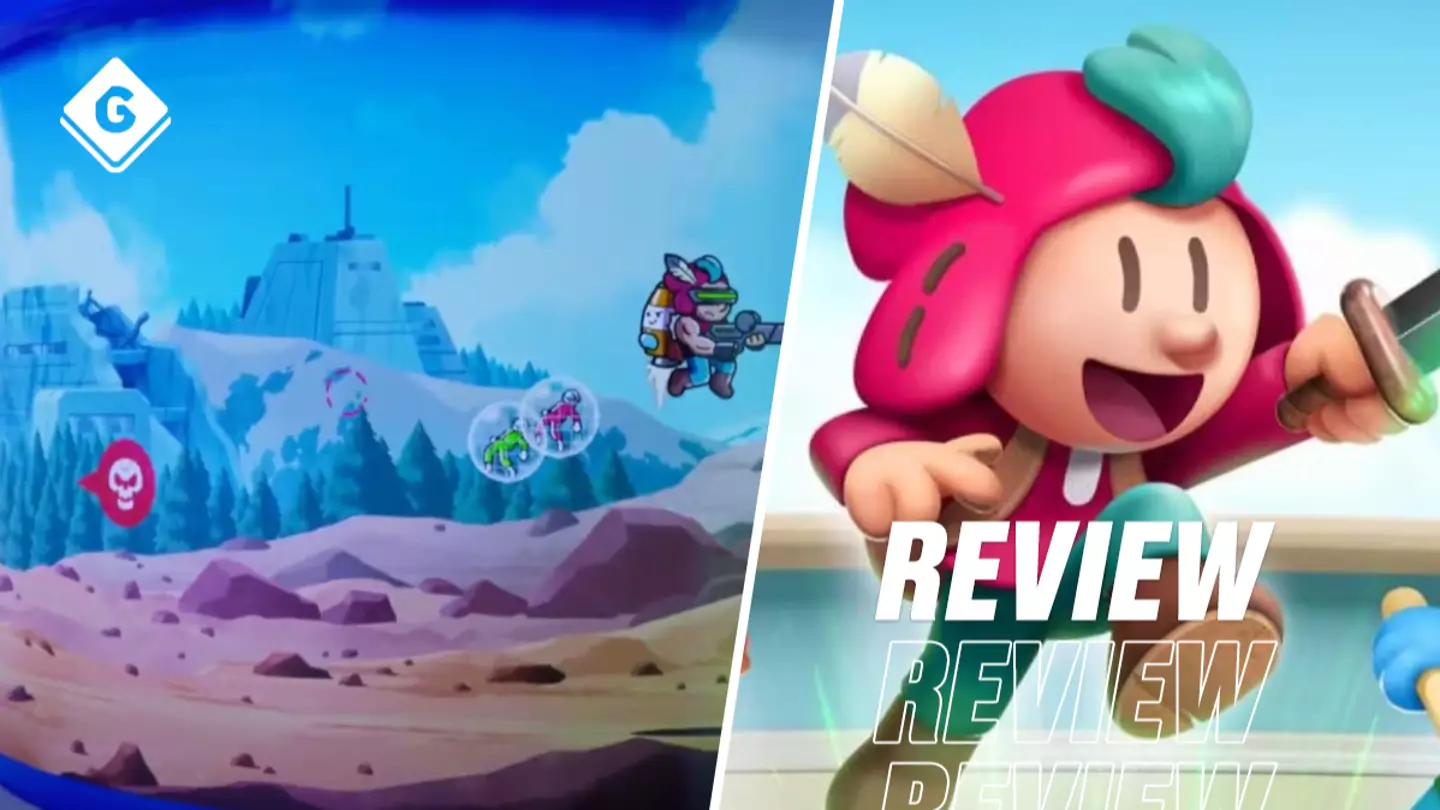
I love single-player games with photorealistic graphics about depressed dads/sad cowboys/moody superheroes as much as the next guy, but I’m also more than a little over the AAA scene’s obsession with trying to be interactive blockbuster movies.
I’m nothing if not a whimsical little bastard, and I want games that aren’t ashamed of being games. I want silliness. I want whacky ideas. I want fun.
Like the excellent Astro Bot, which also came out this month, The Plucky Squire is a love letter to the sheer act of play. A wonderfully sweet piece of work that remembers the purest joy comes from games filled with bizarre ideas and brimming with invention.
Advert
Developed by All Possible Futures and published by Devolver Digital, The Plucky Squire is a storybook adventure that puts players in the adorable shoes of Jot.
Jot is the hero of a story in which he always wins against the evil wizard. But when this wizard realises he’s little more than a character in a book, he gains the power to flip the script. What follows is a deliciously metatextual adventure that mechanically and thematically runs with a brilliant central conceit: what if a fictional character knew what they were and could influence the story?
If you’ve seen any of the trailers you’ll know that Jot can jump between the top-down 2D world of the storybook into a larger 3D world: the desk of the child who owns the book. Rather than have a Truman Show-style existential crisis about not actually being real, which is definitely what I’d do, Jot sets about leaping between worlds to save the day.

The Plucky Squire is easily one of the best-looking games this year, and like Astro Bot is a much-needed reminder that a strong art direction trumps sheer realism any day of the week. The storybook world is absolutely gorgeous, its sense of tactility helped by the design of the thing. From its slick glossy pages to thick, black font, it’s been designed to properly look and feel like the kind of storybook you might find on the shelf of a child’s bedroom.
Within the book, the game predominately plays a lot like a classic Zelda, in that there are puzzles to solve and enemies to vanquish with a sword. But there are plenty of fun and unexpected twists, with minigames that pay tribute to everything from Duck Hunt to Punch-Out.
The 3D realm, the ‘real’ world, is a little bit more of a platformer. Jot has to venture further away from the book at multiple points, and it’s here that All Possible Futures has a lot of fun in embracing various themes. At one point the desk is scattered with various sci-fi merchandise and home-made planets for a space setting. At another point, the child’s love of dinosaurs is apparent, with models of T-Rexes and prehistoric playsets strewn about the place.
Jot can also use his dimension hopping ability to leap into other drawings and flat surfaces on the desk, in a lovely nod to The Legend Of Zelda: A Link Between Worlds. This leads to all manner of fun encounters, like a prehistoric beat ‘em up along a dinosaur diorama, and an RPG battle with an elven archer inside a playing card.

Where The Plucky Squire falters is in its unwillingness to push its puzzles or combat too far, ensuring the game is never more than mildly challenging at the best of times. Now, I’m all for accessibility options in games, but when a game that already has an optional hint system built in pauses the action to give you a massive clue about what you need to do the second you enter a room with a puzzle in it, I can’t help but feel you’ve gone slightly wrong.
The ability to swap certain words around in the book to warp reality and clear obstacles is seriously inspired, and leads to some fun moments, but the solutions rarely require any real creativity or lateral thinking, given there are only ever a limited number of swappable words on the page.
Similarly, combat can be a little clunky, and while there are optional powerups and abilities to unlock, they very rarely feel like worthwhile investments in a game that tends to use combat encounters as padding in between puzzles.
Oh, and the insta-fail stealth sections that appear at the beginning and end of the game? Well, insta-fail stealth is never, ever fun. The Plucky Squire does not buck this trend.
These issues aside, The Plucky Squire is charm personified, and is impossible not to welcome into your heart. It’s a lovingly made sunny day of a game, a throwback to the classics with enough modern touches and genuinely original ideas to ensure it stands on its own two feet. Don’t leave this one on the shelf, whatever you do.
Pros: Stunning to look at, sweet sense of humour, brilliantly inventive
Cons: Insta-fail stealth sections, clunky combat, very few challenging puzzles
For fans of: The Legend Of Zelda, Paper Mario, Duck Hunt
Score: 8/10: Excellent
The Plucky Squire releases 17 September for PC (version tested), PlayStation, Xbox and Nintendo Switch. Review code provided by the publisher. Find a complete guide to GAMINGbible's review scores here.
Topics: Reviews, Indie Games, Devolver Digital